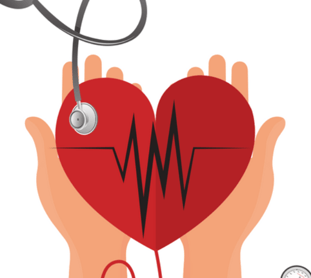 Heart diseases affect the heart and blood vessels. Almost half of all adults in the U.S. have at least one form of heart disease. Heart disease causes depend on your specific type of heart disease. There are many different types of heart disease.
Heart diseases affect the heart and blood vessels. Almost half of all adults in the U.S. have at least one form of heart disease. Heart disease causes depend on your specific type of heart disease. There are many different types of heart disease.
Causes of Coronary Artery Disease
A buildup of fatty plaques in your arteries (atherosclerosis) is the most common cause of coronary artery disease. Unhealthy lifestyle habits, such as a poor diet, lack of exercise, being overweight and smoking, can lead to atherosclerosis.
Causes of Heart Arrhythmia
Common causes of arrhythmias or conditions that can lead to arrhythmias include:
- Coronary artery disease
- Diabetes
- Drug abuse
- Excessive use of alcohol or caffeine
- Heart defects you're born with (congenital heart defects)
- High blood pressure
- Smoking
- Some over-the-counter medications, prescription medications, dietary supplements and herbal remedies
- Stress
- Valvular heart disease
In a healthy person with a normal, healthy heart, it's unlikely for a deadly arrhythmia to develop without some outside trigger, such as an electrical shock or the use of illegal drugs. However, in a heart that's diseased or deformed, the heart's electrical signals may not properly start or travel through the heart, making arrhythmias more likely to develop.
Causes of Congenital Heart Defects
Congenital heart defects usually develop while a baby is in the womb. Heart defects can develop as the heart develops, about a month after conception, changing the flow of blood in the heart. Some medical conditions, medications and genes may play a role in causing heart defects.
Heart defects can also develop in adults. As you age, your heart's structure can change, causing a heart defect.
Causes of Cardiomyopathy
The cause of cardiomyopathy, a thickening or enlarging of the heart muscle, may depend on the type:
- Dilated cardiomyopathy. The cause of this most common type of cardiomyopathy often is unknown. The condition usually causes the left ventricle to widen. Dilated cardiomyopathy may be caused by reduced blood flow to the heart (ischemic heart disease) resulting from damage after a heart attack, infections, toxins and certain drugs, including those used to treat cancer. It may also be inherited from a parent.
- Hypertrophic cardiomyopathy. This type usually is passed down through families (inherited). It can also develop over time because of high blood pressure or aging.
- Restrictive cardiomyopathy. This least common type of cardiomyopathy, which causes the heart muscle to become rigid and less elastic, can occur for no known reason. Or it may be caused by diseases, such as connective tissue disorders or the buildup of abnormal proteins (amyloidosis).
Causes of Heart Infection
A heart infection, such as endocarditis, is caused when germs reach your heart muscle. The most common causes of heart infection include:
- Bacteria
- Viruses
- Parasites
Causes of Valvular Heart Disease
Many things can cause diseases of your heart valves. You may be born with valvular disease, or the valves may be damaged by conditions such as:
- Rheumatic fever
- Infections (infectious endocarditis)
- Connective tissue disorders
Prevention
Certain types of heart disease, such as heart defects, can't be prevented. However, the same lifestyle changes that can improve your heart disease can help you prevent it, including:
- Don't smoke.
- Control other health conditions, such as high blood pressure, high cholesterol and diabetes.
- Exercise at least 30 minutes a day on most days of the week.
- Eat a diet that's low in salt and saturated fat.
- Maintain a healthy weight.
- Reduce and manage stress.
- Practice good hygiene.
You may make lifestyle changes to manage cardiovascular disease or your healthcare provider may prescribe medications. The sooner you detect cardiovascular disease, the easier it is to treat.

